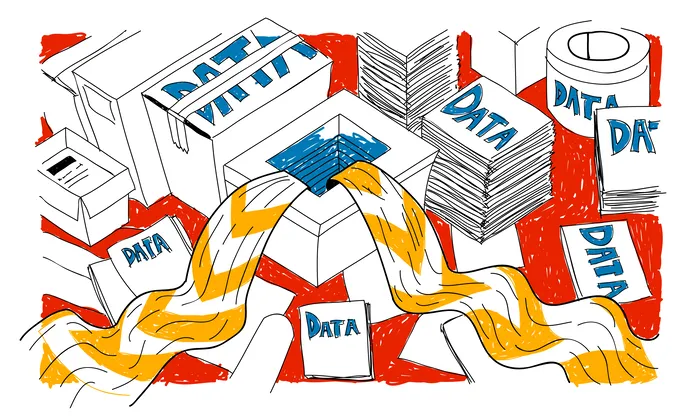How to ensure my custom dataset represents real-world clinical workflows?
Data Modeling
Healthcare
AI Models
Creating a custom dataset that accurately mirrors real-world clinical workflows is critical for the development of robust AI models in healthcare. At FutureBeeAI, we understand that capturing the complexity and nuance of real clinical interactions is essential for effective AI training. Here's how you can ensure your custom dataset truly represents these workflows.
Significance of Mirroring Real-World Clinical Workflows
Real-world clinical workflows involve diverse interactions between healthcare professionals and patients, where decisions are often nuanced and context-dependent. Accurately capturing these workflows is crucial because it allows AI models to learn from authentic scenarios, improving their performance and reliability in real-life healthcare applications.
Strategizing Effective Data Collection for Healthcare Datasets
- Simulated Yet Realistic Conversations: Using genuine doctor-patient interactions can pose ethical challenges. Instead, simulate conversations under professional supervision to reflect common clinical scenarios. This method, employed by FutureBeeAI, ensures dialogues are realistic and contextually rich without privacy concerns. It also allows for the inclusion of various medical specialties and patient demographics, enhancing the dataset's comprehensiveness.
- Diversity in Speaker Profiles: Recruit a diverse set of medical professionals and patients, considering variations in age, gender, language, and cultural backgrounds. This diversity enriches the dataset, enabling AI models to better understand and respond to different communication styles and patient needs.
Implementing Realistic Recording Conditions
- Authentic Acoustic Environments: Capture recordings in settings that mimic real clinical environments, such as outpatient clinics or telehealth sessions. This includes ambient sounds typical of these settings, like background chatter or equipment noises, enhancing the dataset's realism.
- Natural Dialogue Flow: Allow conversations to be guided by healthcare professionals based on their expertise, ensuring they are unscripted and spontaneous. This approach captures the natural exchange of information, including interruptions and emotional cues, which are vital for realistic AI training.
Embracing Linguistic and Domain Diversity
- Multilingual Healthcare Datasets: Healthcare operates globally, necessitating datasets that include multilingual conversations. This linguistic diversity helps train AI models for use in various cultural and healthcare settings, enhancing their applicability and effectiveness.
- Medical Specialty Diversity: Incorporate interactions from different medical specialties such as pediatrics, cardiology, and psychiatry. Each specialty has unique terminology and communication styles, which should be reflected in the dataset to improve AI models' domain-specific understanding.
Implementing Robust Quality Assurance for Dataset Credibility
- Two-Tier Review Process: Use a rigorous quality assurance process involving both automated checks and manual reviews. FutureBeeAI specializes in this, ensuring recording quality and transcription accuracy, while medical professionals validate the contextual accuracy and relevance of dialogues.
- Continuous Feedback Loops: Establish feedback loops with healthcare professionals to continually refine the dataset. Regular updates based on user experiences and medical practice advancements ensure the dataset remains relevant and effective for AI training.
Potential Pitfalls and Considerations
- Avoiding Superficial Representations: Ensure that authenticity isn’t compromised for convenience. Avoid using scripted dialogues or simplified scenarios, as these can fail to capture the complexity of real-world interactions.
- Ensuring Ethical Oversight: Ethical considerations must be central to your data collection strategy. Obtain informed consent and adhere to privacy regulations like GDPR and HIPAA, even with simulated conversations. This not only safeguards participant rights but also enhances the dataset's credibility.
Final Thoughts on Developing Effective Clinical Datasets
Building a dataset that accurately reflects real-world clinical workflows requires careful planning and diverse representation. By focusing on realistic interactions and comprehensive coverage, you can create a powerful foundation for training healthcare AI models. FutureBeeAI is committed to providing expert guidance and resources to help you achieve this, ensuring your AI systems are well-equipped to support healthcare professionals and improve patient outcomes.
Smart FAQs
Q. How can I ethically collect simulated clinical data?
A. Adopt strict ethical guidelines by obtaining informed consent from participants and adhering to global privacy standards. Regular audits by an independent ethics review panel can help maintain compliance.
Q. What key elements should be included in a doctor-patient conversation dataset?
A. Ensure diverse speaker profiles, realistic dialogue flow, contextual medical scenarios, and a thorough quality assurance process involving both automated and manual validation are included for a comprehensive dataset.
What Else Do People Ask?
Related AI Articles
Browse Matching Datasets
Acquiring high-quality AI datasets has never been easier!!!
Get in touch with our AI data expert now!








